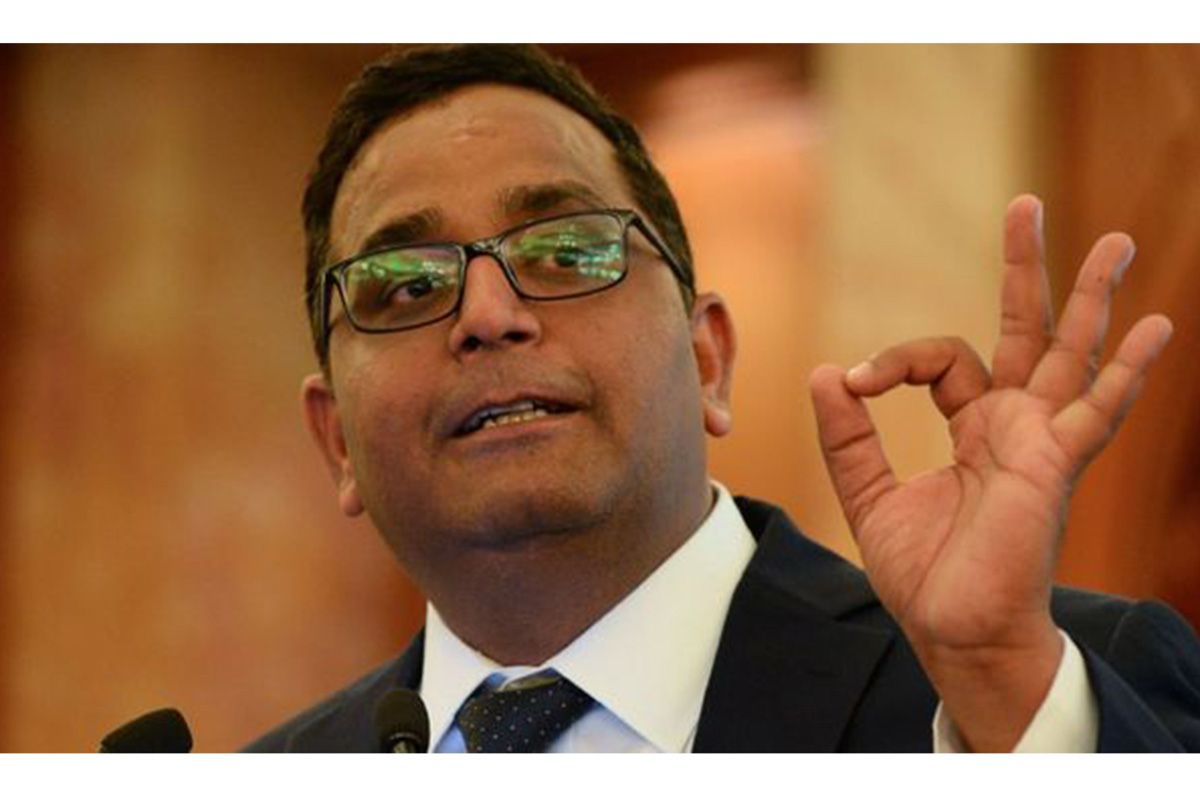AAP meets Delhi CEO over derogatory posters of Kejriwal
The complaint is said to be over an alleged violation of the Model Code of Conduct.
Paytm’s Vijay Shekhar Sharma was reappointed as CEO in annual general meeting held on Friday after a tough questionnaire by shareholders.

File Photo
Paytm’s 22nd Annual General Meeting (AGM) was held on Friday, the first ever, after it got listed in November 2021. The AGM was considered to be very crucial for Managing Director (MD) and Chief Executive Officer (CEO) Vijay Shekhar Sharma as his reappointment as the leader of the fintech was at stake.
Detailed information, pertaining to the shareholders’ decision and discussions done in the meeting, was not made public by the company’s management. However, it was confirmed that majority of the shareholders have reposed their faith in Sharma to continue as the CEO.
Sharma was facing a floor test to save his position as proxy advisory firm Institutional Investor Advisory Services (IiAS), flagged certain issues related to his leadership. The reasons that had earlier forced IiAS, Stakeholders Empowerment Services (SES) and InGovern Research Services the three proxy advisory firms to advise shareholders against Vijay Shekhar Sharma reappointment are given below:
Advertisement
Flawed professionalism in management
A report released on the 9th August by advisory firms highlighted an unprofessional approach in managing the firm. It stressed that Mr. Sharma has attended only 9 out of 19 board meetings with 47% attendance. IiAS advised him to attend at least 75% of board meetings and work seriously in the interest of shareholders.
Fear of permanency in board
Advisory firm put a red flag on Sharma’s retirement as he is not liable to retire by rotation and if he continues for next five years as a non executive, he may become permanent member as MD.
High remuneration
The report also highlighted that Sharma’s remuneration was very high for a loss making company. His remuneration for financial year 2022-23 was at Rs 796 crore, which comprises around 21 million stock options, much higher than any other CEO of profit making companies listed on Bombay Stock Exchange (BSE).
Poor Performance of Company
Advisory firms also stressed on the downfall in the company’s share prices. Paytm Initial Public Offering (IPO) was Rs 2150 while it was listed on Rs 1955. It has lost almost 64% of its share price since its listing. Apart from poor share market performance, the company is also suffering losses. In the third quarter of the last financial year, it posted a loss of Rs 780 crore and Rs 761 crore loss in the fourth quarter. Whereas, In the first quarter ending June, of the current financial year, the company suffered a loss of Rs 644.4 crore.
Revenue Problem
Paytm’s Payment Bank and financial services, such as online transactions and third party financial products, contribute to more than 80% of its revenue and the rest comes from cloud and commerce services. In the Financial Year (FY) 2019-20 and 2020-21 the company saw a downfall of 7% and 6 % respectively. In FY 2022, its cumulative revenue rose by 22 percent.
RBI’s action
Company has also faced issues with the Reserve Bank of India (RBI) which have impacted its performance in the stock market, negatively. In October 2021 Reserve Bank of India had imposed a penalty of Rs 1 crore, citing that PayTm had not provided a factual position in its application for a final Certificate of Authorization (COA). Further, in March 2022, the RBI barred Paytm to onboard new users and customers. The RBI imposed these restrictions, citing issues in customer data management by the Indian digital payments and financial services company .
Vijay Shekhar Sharma is set to lead the company for at least the next term, post the vote of trust extended by the company’s shareholders. Sharma, in his vote of thanks reiterated his resolve to make the company profitable by end of September 2023.
Advertisement